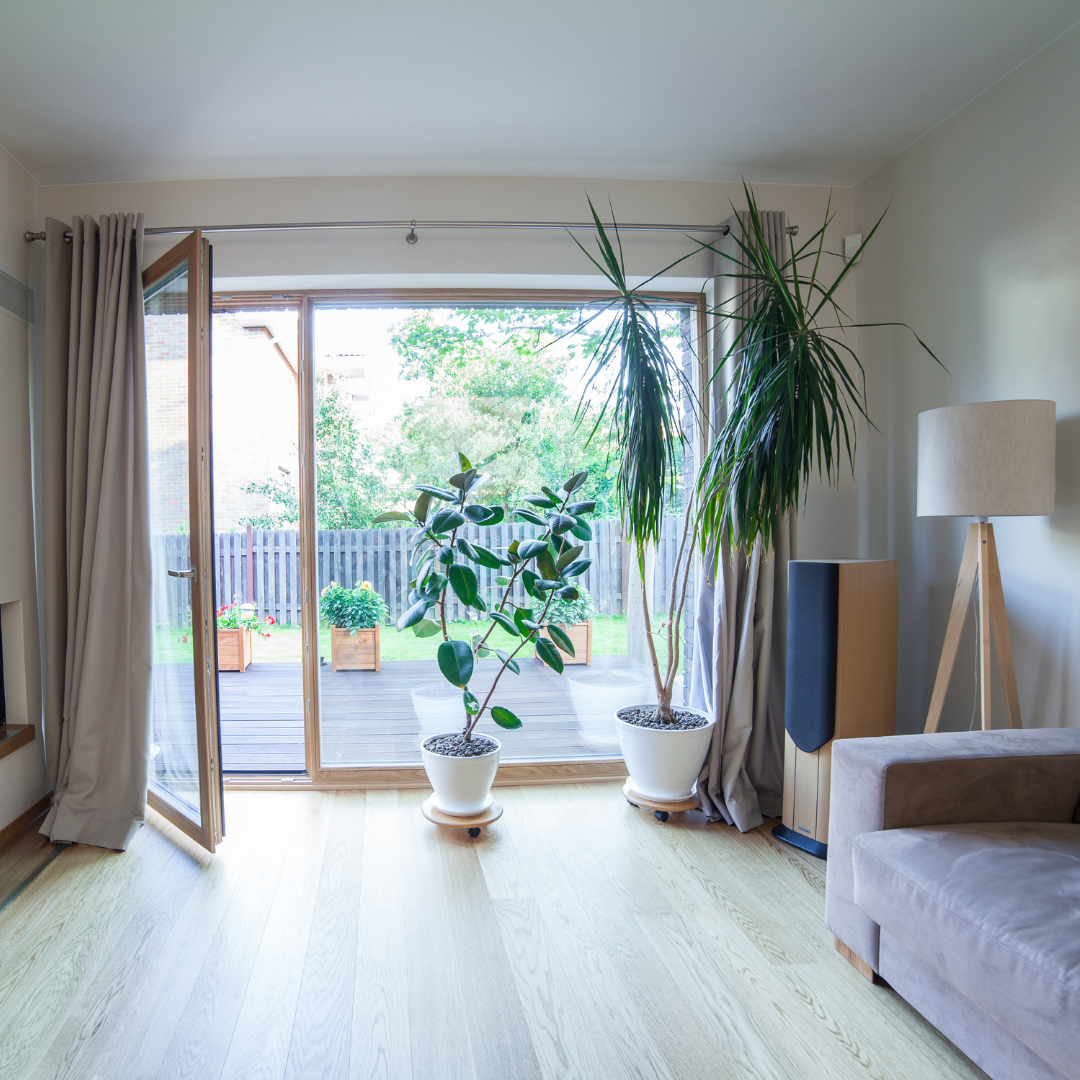Every summer, peak heat waves make headlines across the nation, and if you’re one of the unfortunate people who experience the heat, then this survival guide is for you. Heat waves occur when the outside temperature exceeds 95 degrees for an extended time. This means that going out no longer remains an option. All you should do at this time is take precautions to stay cool inside of your home. However, in the event that you need to venture outside, then take measures to cool down quickly.
Remember that it’s imperative that you keep your home cool-especially if you own a dog or cat. While humans can sweat to dissipate heat, animals can’t. So, if their body temperature stays high, it can lead to heatstroke, which can be deadly. Hopefully, this piece of information makes it simple to understand why keeping your home cool during heat waves is a top priority. That said, here are a few tips to help you keep your indoor areas breezy and more comfortable.
Installing new whole-house fans or an AC is an option. But before you do that, contact one of the master electricians from Sydney or wherever you reside to see if your electrical panel can handle that kind of load any longer. Furthermore, he might provide recommendations for some of the greatest ways to conserve energy when installing new electrical equipment.
Set the Thermostat Properly.
It’s important to think about all your options now that summer has arrived, from wearing light, loose-fitting clothing to installing an air conditioner by opting for an AC installation service in Manassas or elsewhere. In order to combat the heat, homeowners typically make sure that their thermostat is set higher than usual. The best thing is that raising the thermostat a few degrees can reduce cooling expenditures by up to 10%.
Turn the Fan on.
If the sun is scorching outside, turning on the fan is the best way to cool your home quickly. Turn on the ceiling fans, baseboards, or central location fan in your family room and living room and circulate the air. Open the windows and let the air flow through to keep the cool air circulating. Summer is a season when people use fans throughout the day, resulting in overheating of the motor, which can damage the fan. Therefore, before the summer season arrives, it is advisable to contact an electrician like Colonial Home Services (colonialva.com) for the maintenance of electric fans.
Keep Shades Closed on Extremely Hot Days.
It’s summertime, which means you’ll be spending a lot of time outside. Of course, you’ll want to enjoy the warm weather, but it’s equally important to protect your health. One of the best ways to do this is to keep the shades closed on extremely hot days. It will help keep out the intense sunlight, which can assist in keeping your home cooler.
Close off Unused Rooms to Conserve Energy.
Save energy in your home during heat waves by locking the rooms you don’t use. Closing off rooms that you aren’t using can warm or cool the air in that space. If you have a warm room, cool it with an air-conditioner and shut the doors and windows. That way, the air will not circulate throughout the house, thereby allowing you to reduce your energy use.
Consider Upgrading your Air Conditioning System.
With the increase in temperatures around the country, it’s important to know how effectively your HVAC systems are working. If you’re unsatisfied with your current air conditioning system, consider upgrading to a more efficient model. However, before making any purchase, do thorough research on the Web regarding the latest models. If need be, talk to an electrician (like the ones you can find by searching electrical services in Lansdale, PA, for instance) and take his expert advice on the same. Remember that it is imperative that you buy a cooling device with increased efficiency as the system will use less electricity to cool your home. This might further enable you to qualify for energy rebates or tax credits on your utility bills.
During the summer months, heat may be the last thing on your mind, especially if you live in a place with a mild climate. But you can’t ignore the possibility of heat waves. When it’s 100 degrees outside, your body can heat up in as little as 30 minutes – leading to heat cramps, exhaustion, or stroke. It’s, therefore, crucial to learn how to keep cool during a heat wave.

